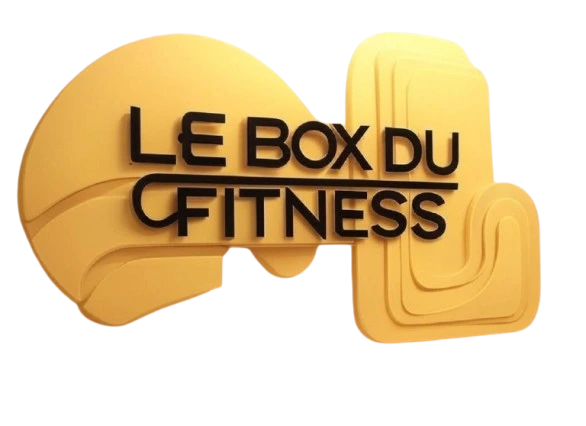Well-being as a whole
For many people, wellness means physical fitness, holistic care, happiness, relaxation, emotional balance, stress reduction, quality of life and spiritual health.
However, many agree that wellness is more than just the absence of disease. The concept of wellness has come to mean practicing a proactive lifestyle.
Everyone has their own definition of wellness, and the only one that should matter to you is yours... The World Health Organization defines wellness as a state of complete physical, mental and social well-being, not just the absence of disease.
The concept of wellness is not new.
In fact, the idea of wellness dates back to ancient Chinese, Greek and Roman cultures, all of which emphasized holistic approaches to achieving health, well-being and harmony in life.
My personal definition of wellness is enabling the best possible health for my physical, emotional, intellectual, spiritual and social being.
Many of these wellness concepts are still valid today, as we face even greater challenges than our ancestors did.
Many health experts agree that wellness must include a balance between the multiple dimensions of life: emotional, physical, social, spiritual, environmental, financial, intellectual and professional.
They believe that all dimensions of well-being are interdependent and essential to a fulfilling life.
Create your wellness goals
Once you have a good idea of what wellness means to you, you can start to consider creating goals to increase your sense of well-being.
By having a clear idea of the different things you want, it's much easier to create those changes.
Typical wellness goals include maintaining a healthy weight, reducing stress, managing medical conditions, improving physical fitness, or developing creativity to achieve personal and professional goals.
Some people I’ve spoken to want a better balance between work and home. Others want to be more organized and less cluttered. And still others want to be more intuitive and better at listening to the signals their bodies are sending them.
My wellness goals focus on becoming aware of how I feel and using that awareness to make improvements as I go.
In other words, it's about being aware of what's working in life and improving it, but also being aware of what's not working and being proactive about improving it.
I'm always looking for balance in my life, to relax enough, move enough, eat the things that make my body feel good, think in ways that make me feel good emotionally, and challenge my mind and body in ways that create improvement.
I'm a big fan of writing, so this is the perfect time to pick up a notebook.
You can start by sketching out your definition of well-being and then list the areas you would like to improve.
As we've learned, all of the items on this list impact your overall well-being.
What is well-being according to you?
Wellness refers to complete health, rather than just your physical health.
Well-being is not just the absence of illness or stress, but also having a purpose in life, being emotionally healthy, actively participating in work and leisure, having joyful relationships, and being happy.
Wellness is about every aspect of your life, beyond your physical health. To live a fulfilled and happy life, it is important to take care of your well-being and dedicate time to it.
Synonyms for well-being:
What are the synonyms of "well-being"? Here are some words with a similar meaning:
- Well-being
- Physical fitness
- Integrity
- Health
Wellness encompasses the whole human being, mind, body, and soul, and all the things that make a person whole. A healthy life is the result of well-being in all aspects of life, whether emotional, physical, spiritual, or otherwise.
Why is health and wellness important?
Well-being is important because it impacts the state of your physical health.
For example, research shows that people with mental health or substance abuse disorders tend to die years earlier than the general population.
This is due to the negative impact of:
- Smoking
- Unhealthy weight
- Side effects of drug addiction
Lack of access to adequate health care
People with serious mental illness suffer from diabetes, high blood pressure and obesity at rates 1.5 to 2 times higher than the general population.
Evidence shows that depression may increase the risk of stroke in women and that trauma can negatively impact physical, social, emotional and spiritual functioning and well-being
For example, trauma could:
- Change the physical structure of your brain
- impact your ability to communicate
- affect the way you feel your emotions
- impact your ability to sleep.
By focusing on the eight dimensions of well-being, you can improve your quality of life, your health, and possibly extend your lifespan.
What does well-being mean to you in your essay?
Wellness is an active process of becoming aware and making choices to lead a healthy life.
Well-being is also a process of change and growth. To have acceptable well-being, you must have an equal amount of social, emotional/mental, and physical health.
I myself believe that I have an acceptable well-being, I mean not a complete well-being but just enough to get by, I would say. But how do I experience well-being?
There are different ways to experience well-being. My social health is improving. I do my best to be sociable with people.
I enjoy talking to people occasionally, but it's better than not talking at all. I would say my mental/emotional health is good.
I mostly have acquaintances, people I would talk to but not say anything personal to. Anyway, my physical health is not the best.
I keep having back pain, and sometimes chest pain that hurts a lot. That's why my resolution is to exercise. I start in the spring when I can do a lot more things like sports and walking.
It's also a good thing that I exercise because if I didn't, I wouldn't know all the problems that could happen to me if I continued to be lazy. I think my behaviors have something to do with my problems.
It's important to think about your behaviors because you have to think about how they're going to affect you and the other person. If you call someone ugly and tell them it's a joke, you don't know how that person is going to react to what you're saying.
The person may laugh now, but later they will think back on that comment and start wondering if they are ugly or not. There are people who can take jokes, and there are people who can't.
You just have to differentiate between those who are and those who are not. There are times in class when you're learning something, and there's this person who wants to talk in class while you're learning.
This person doesn't think about how he makes others feel, he only thinks about himself.
What is well-being? How important is it?
Well-being is, above all, being in good physical and mental health.
Because mental health and physical health are so closely linked, problems in one area can impact the other.
At the same time, improving your physical health can also benefit your mental health and other areas of life, and vice versa.
It is important to know that wellness is an intentional, ongoing, holistic approach to making healthy choices in eight major areas of life functioning.
Over a year and a half ago, the pandemic had an unprecedented impact on every aspect of students' individual and relational well-being.
The most obvious is to live with precautions, masked and medically protected by the vaccine, but it has left no area of well-being untouched.
We invite you to reflect on what it might mean now to “let your well-being flow” with creativity, compassion and collective understanding.
The intention is not to suggest that we now have other things to do to feel better, but that we have options; new, optimistic ways to navigate what it means to be intentionally, holistically well while feeling the impact of so much change and challenge.
PHYSICAL WELL-BEING
The pandemic has highlighted how our physical bodies handle not only general stress, but also traumatic stress.
Increased fatigue, difficulty sleeping, tension headaches, and body aches are all common signs of traumatic adaptation stress or ongoing stress related to COVID-19.
The diversity among us means that we may feel different things in our bodies than people we know.
Take care of yourself for your physical well-being:
Consider new types of physical activities that you've never tried before, or maybe something you've always wanted to try but haven't had time to do.
If you are a runner, consider alternating with walking. If you are a walker, you can listen to a walking meditation.
If you don't do either, consider incorporating gentle stretches while you study.
Having positive, inquisitive conversations with family and friends about their physical well-being can inspire you to consider new strategies for yourself.
SPIRITUAL WELL-BEING
A year ago, religious/spiritual practice experienced a dramatic shift as spiritual and religious communities began offering services such as preaching, prayer and meditation, and even bedside visits, virtually.
Worshippers lamented the loss of sacred space and communal practices, especially during holy seasons such as Passover, Easter and Ramadan, and other occasions when the community comes together in solidarity.
Self-care for spiritual well-being:
Explore creative ways to access spiritual/religious communities; participate in informal spiritual/religious discussion groups via Zoom;
Consult with spiritual/religious elders for guidance and support in navigating this time; consider ways to find spiritual community that transcends the physical presence of others.
SOCIAL WELL-BEING
For some of us, the need for social distancing can feel confusing and disconnected, especially if social engagement has been a big part of our self-care.
Humans are biologically wired to seek connection, attunement, and validation in relationships.
Although we cognitively know that it is important to maintain a safe distance and gather virtually with others, our human attachment system struggles to feel less intimate, making it more difficult, and exacerbating feelings of disconnection and isolation.
The social whiplash between normal, quarantine, normal with masks, quarantine, and who knows... can be overwhelming.
Self-care for social well-being:
Ask yourself if it would be helpful to talk about it with people you trust or in safe relationships.
Having another person by our side when we feel confused and disconnected, without comparison or judgment, is the essence of social well-being.
During these conversations, perhaps we can pause if the emotional reaction is strong, showing gratitude when we would normally have continued.
At other times we say hello to our classmates, we create technology-free moments in the day.
Maybe even deciding, “Do I need advice now or do I just want someone to listen?” and then identifying and connecting to an available social resource to make that happen.
WELL-BEING AT WORK
Well-being at work is about recognizing and accessing personal satisfaction and life enrichment through work.
During the pandemic, this area of well-being has been significantly redefined and accelerated in areas related to our work environments.
If we are not in healthy and productive spaces, well-being at work is compromised.
Without the assurance of socially responsible collective behavior, clear action and communication, morale and trust erode.
Taking care of yourself for well-being at work:
Set clear boundaries around work issues to prevent them from spilling over into other areas of life. Consider another workspace, one that is closer to a sunny window.
If a technology update is needed for the work you do, see if there are resources for that.
Ask for clarification on workplace precautions (COVID-19) and express your safety needs.
Above all, prioritize your health if you are able to take time off due to illness.
INTELLECTUAL WELL-BEING
Intellectual knowledge is about engaging in creative and mentally stimulating activities, learning and developing skills around expanding and sharing knowledge with others.
Not feeling intellectually stimulated can affect the production of chemicals in the brain that can make us feel happy and excited to engage in learning.
ENVIRONMENTAL WELL-BEING
Access to enriching spaces in our immediate and external environment has played a major role over the past year and a half.
We’ve had to turn to safer outdoor spaces for communal activities. When we need to social distance, we often move indoors, limiting our contact with others.
The importance of space to gather and be with others in a positive and safe way while we engage in an activity or task is highlighted.
The people, places, attitudes and ideas that surround us in daily life also define our environmental well-being.
Self-care for environmental well-being:
Stay connected to your community: family, friends, teachers, mentors. Be willing to talk to those around you about the time and space you need to be comfortable.
Especially for the more introverted among us, it's important to champion your alone time to reconnect and re-energize throughout the day.
What level of noise is acceptable for you? Should you discuss noise with your roommates or family? Being outdoors provides vitamin D and releases endorphins, all important for maintaining mental and physical health.
CULTURAL WELL-BEING
The pandemic has forced us to take urgent stock of our cultural well-being as individuals and as a whole.
Inequality fueled by structural oppression and racism continues to harm the people around us, whether we know them or not.
Native Americans, African Americans and Latino-X people are three times more likely to be hospitalized and twice as likely to die from Covid-19 than white people.
Similarly, Black and Latino/x communities are receiving a lower share of vaccines relative to cases and deaths.
In a place at the crossroads, where over 2,000 young adults from near and far gather for their education, there are human beings who come from many places and experiences and who contribute to the collective culture of the community.
Self-care for cultural well-being:
Seek out diverse perspectives, facts, stories, and experiences. Interact with peers who are different and be curious about your own culture, family rituals, and traditions, which research shows improves well-being.
Perhaps now is the time to consider participating in conversations about campus culture.
Taking the time to reflect on the internal biases we hold based on stereotypes related to race, gender, religion, or sexual orientation is a simple but important strategy in our quest for well-being in this area.
EMOTIONAL WELL-BEING
Paradoxically, our stress helps us cope, bond over distance as best we can, and slow the spread of the virus.
Although uncomfortable, it can be a source of resilience, especially if managed well. At the same time, it is important to stay informed, but to prevent the contagion of internal or external panic and to create periods where we can be screen-free and calm, engaging our attention in present-moment activities.
Self-care for emotional well-being:
The emotional challenge of the past year and a half means that we are humans with inner experiences.
Prioritizing our emotional well-being now may mean getting back to basics. Getting enough rest.
Eat throughout the day to maintain our energy. Slow down if we feel more tired than usual.
And stepping back periodically to remind ourselves that whatever we feel internally is valid and expected after going through so much.
We have spent a lot of time to offer you the most complete article on the subject of training to lose 5kg in 30 days, we hope you loved learning about it. Do not hesitate to subscribe to the private club, you will also receive our complete book as a gift on the best way to structure your fitness training, you will receive an email in advance when an article appears on our site leboxdufitness.com
Also feel free to check out our store which offers the best fitness, bodybuilding and fitness equipment.
Did you like this article and it helped you remember what rocked us in our childhood and what shaped our vision of fitness today. Let me know in the comments if you were already aware of these concepts and what is your experience on the subject.
If you want to find other Fitness and Wellness articles, take a look at the fitness coaching and leg exercises sections of the blog, you will find plenty of workouts and exercises to do at home. And if you want to know more about sports nutrition (food supplements) to build muscle or lose fat, do not hesitate to consult the fitness accessory collection .
You can download my complete fitness guide “ The essentials for a body in top shape ” for free and subscribe to our Facebook page and our Instagram account .
Thank you for reading, I am personally responding to the comment.
Looking forward to corresponding with you!


















